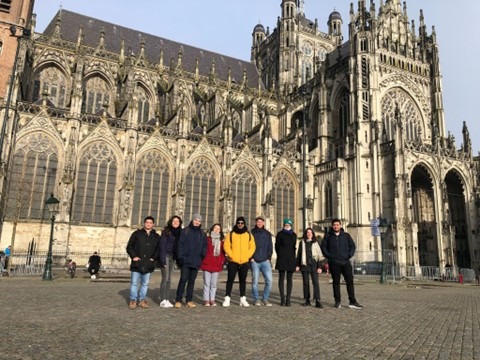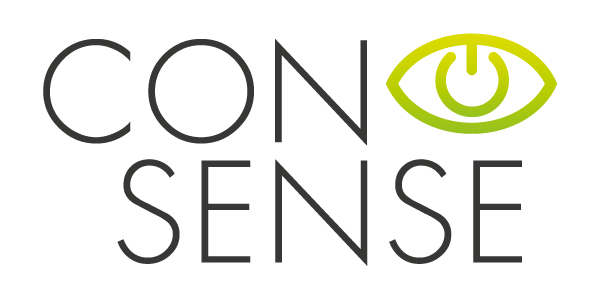The first meeting of CONSENSE has taken place in a hybrid form to allow everyone to join despite the Covid-19 pandemic. Being the first meeting of the consortium, Professor Prins gave a short introduction regarding the principles behind an International Training Network (ITN) and the aims of CONSENSE.
The program continued with three lectures about the challenges in different areas relevant for our projects in continuous biosensing. The first one was given by Professor De Jonge regarding clinical patient monitoring. The main take-away of this lecture was to underline two areas where continuous biosensing is crucial: in the intensive care unit (ICU) to provide a prompt intervention and in diseases requiring a personalized treatment, for example those occurring with a dysregulated response to infection. For the second lecture, Professor Merkx focused on nanoswitches, highlighting the state-of-the-art and reminding the most important requirements for a continuous biosensor. Lastly, a lecture regarding optical detection technologies, that is the readout method chosen for the CONSENSE project, was held by Professor Lammertyn.

After, each of the ESRs introduced themselves and their respective projects, typically including the previous work done by the research group and the main concept to develop during their PhD. Each presentation was followed by questions and suggestions coming from all the people involved: other ESRs, PIs or members of the partner organizations. The opportunity to have feedback from people belonging to different backgrounds and experiences is a part of what makes ITNs so special because it allows the researchers involved to grow, develop scientific criticism and find ways of collaborating.
The scientific program was then concluded with a tour of the laboratory facilities at TU/e, which was particularly interesting to foresee collaboration opportunities and possible secondments.
The social activities during the CONSENSE introduction days was the first opportunity for the ESRs to get to know each other. The PhD students working at the host institution typically organize some activities to have fun together and we have to say that the ESRs from Tu/e really did a great job! Among the several activities, we visited the Philips Museum with the special guide of a passionate former employee and we had a day trip to Den Bosch. There, we walked around the city, hometown of the painter Bosch until we reached a cafeteria, where we participated in a workshop and had the chance to decorate the typical dessert of the city disguised in the funniest way.
Many thanks to Anna, Helen, Livio and Sebastian (ESRs at TU/e) for organizing this fantastic introductory meeting. We are looking forward to the next conference in early 2022!
Authors: Claudia Scarpellini and Emily Tsang
